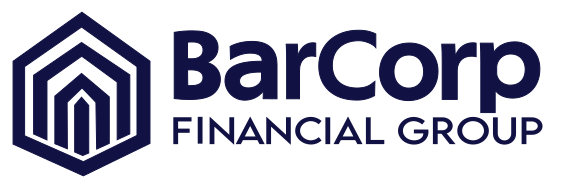FHA Loan
What is a FHA Loan?
An FHA loan, insured by the Federal Housing Administration, helps low-to-moderate-income borrowers qualify for homeownership. With lenient credit requirements and lower down payments, it’s ideal for first-time buyers and those with imperfect credit.

Benefits of FHA Loan
FHA loans provide key advantages such as low down payments (starting at 3.5%), flexible credit score requirements, and lenient debt-to-income guidelines. These features make FHA loans a great choice for buyers who need more flexibility or may not qualify for conventional loans.
Why BarCorp is the Best Option?
At BarCorp Financial Group, we put your financial well-being first. Our experienced mortgage advisors offer personalized service and expert guidance throughout the FHA loan process. We’re committed to securing the best terms for you, ensuring a smooth and stress-free experience.
Required Documents for FHA Loan Approval:
- Proof of Identity: Government-issued ID (e.g., driver’s license, passport).
- Social Security Number: For verification purposes.
- Income Verification: Recent pay stubs, W-2 forms, or tax returns (typically from the past two years).
- Employment Verification: A letter from your employer or recent pay stubs to confirm your current employment status.
- Credit History: Authorization for a credit check.
- Bank Statements: Statements from the last two to three months to verify your financial status.
- Down Payment Verification: Documentation showing the source of your down payment funds.
- Debt Information: Details of your current debts, such as credit card statements, student loans, or auto loans.
- Property Information: Sales contract for the home you plan to purchase.
- Additional Documentation: Any other documents required by the lender, such as divorce decrees, bankruptcy papers, or explanations for credit issues.
Benefits and Advantages
Lower Down Payment
Down payments as low as 3.5% of the purchase price.
Flexible Credit Requirements
More lenient credit score criteria, often accepting scores as low as 580.
Competitive Interest Rates
Access to favorable interest rates due to FHA insurance.
Higher Debt-to-Income Ratio
Allows a higher debt-to-income ratio than conventional loans.
Assumable Mortgage
Future buyers can assume your FHA loan, potentially saving on interest rates.
Closing Cost Assistance
Sellers and lenders can contribute to closing costs.
Streamlined Refinancing
Easier and faster refinancing options available for existing FHA loans.
Mortgage Insurance Protection
Mortgage insurance protects lenders, allowing for lower down payments.
Wide Range of Property Types
Can be used for single-family homes, multifamily homes, and condos.
Available for Renovations
FHA 203(k) loans cover both purchase and renovation costs.
Questions and Answers
1. Who Qualifies for an FHA Loan?
FHA loans are designed to help first-time homebuyers, individuals with a lower credit score, or those who cannot afford a large down payment. To qualify, you generally need a credit score of at least 580 to make the minimum down payment of 3.5%, steady employment history, and a debt-to-income ratio below 43%.
2. What are the Benefits of an FHA Loan?
The benefits of an FHA loan include a lower down payment requirement (as low as 3.5%), more lenient credit score requirements, and the ability to use monetary gifts from family or grants for down payments and closing costs. FHA loans are also assumable, allowing a future buyer to take over the loan under the same terms, potentially making the property more attractive during resale.
3. What Types of Properties Can I Buy with an FHA Loan?
You can use an FHA loan to buy single-family homes, 2-4 unit properties, condominiums, and manufactured homes that meet FHA standards.
4. Can I Use an FHA Loan for a Fixer-Upper?
Yes, you can use an FHA loan to buy a fixer-upper through the FHA 203(k) rehabilitation loan program. This program allows you to finance both the purchase of the home and the cost of its rehabilitation through a single mortgage.
5. What are the Down Payment Requirements for an FHA Loan?
The minimum down payment for an FHA loan is 3.5% if your credit score is 580 or higher. If your credit score is between 500 and 579, you’ll need to make a down payment of at least 10%.
6. Do FHA Loans Have Mortgage Insurance?
Yes, FHA loans require both upfront and annual mortgage insurance premiums (MIP). The upfront MIP is typically 1.75% of the loan amount, and the annual MIP varies from 0.45% to 1.05% depending on the length of the loan, the amount borrowed, and the initial loan-to-value ratio (LTV).
7. Can I Refinance My FHA Loan?
Yes, FHA loans can be refinanced using the FHA streamline refinance program, which simplifies the refinancing process by requiring less documentation and no appraisal. You can also opt for an FHA cash-out refinance if you want to convert home equity to cash.
8. How Do I Apply for an FHA Loan?
To apply for an FHA loan, start by finding an FHA-approved lender. You will need to provide financial documents like pay stubs, tax returns, and bank statements. The lender will also check your credit report and assess your debt-to-income ratio to determine your eligibility.
9. Are There Any Restrictions on Selling a Home Purchased with an FHA Loan?
There are no restrictions on selling a home purchased with an FHA loan. However, if you sell soon after purchasing, keep in mind that the FHA requires you to pay the annual mortgage insurance premium for the entire year, regardless of when you sell.
10. What Are the Long-Term Considerations When Choosing an FHA Loan?
While FHA loans offer several advantages like low down payments and lenient credit requirements, they also come with long-term costs due to the mortgage insurance premiums that can add to the overall cost of the mortgage. Additionally, the lower down payment might result in higher monthly payments compared to conventional loans. Prospective borrowers should consider these factors to ensure the loan aligns with their long-term financial goals.
Have any Questions…
We’re here to help!
